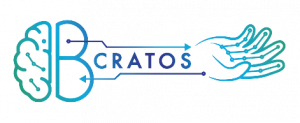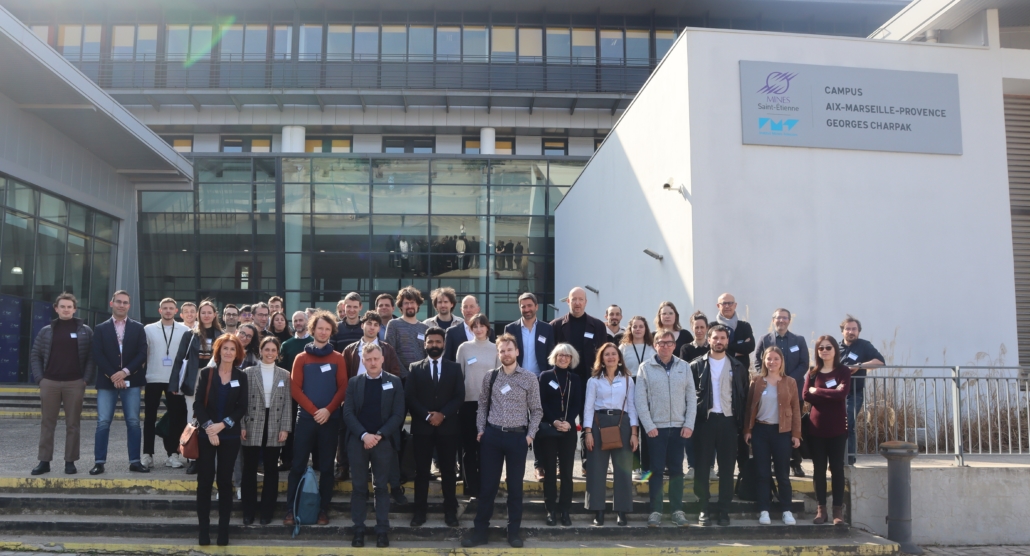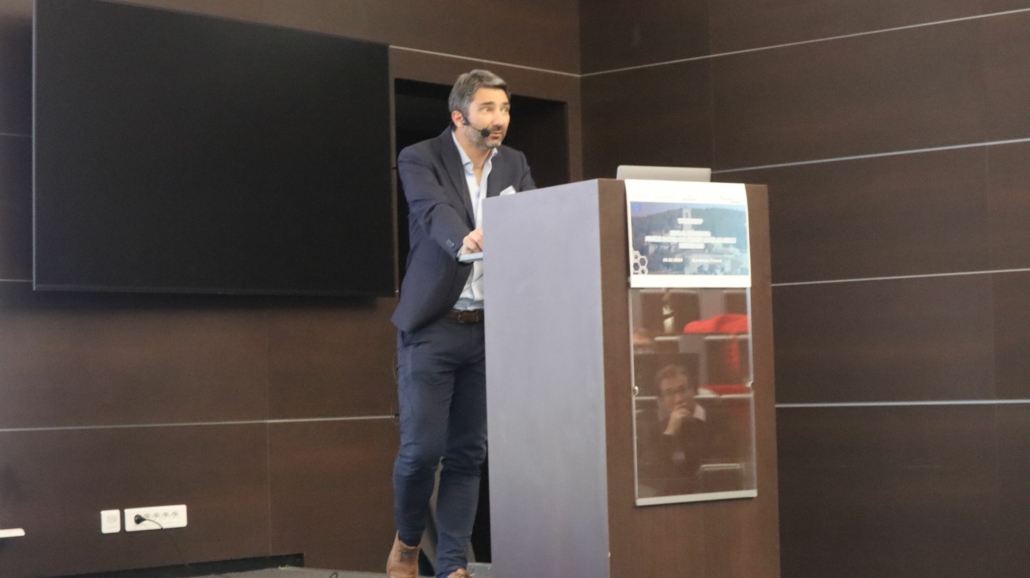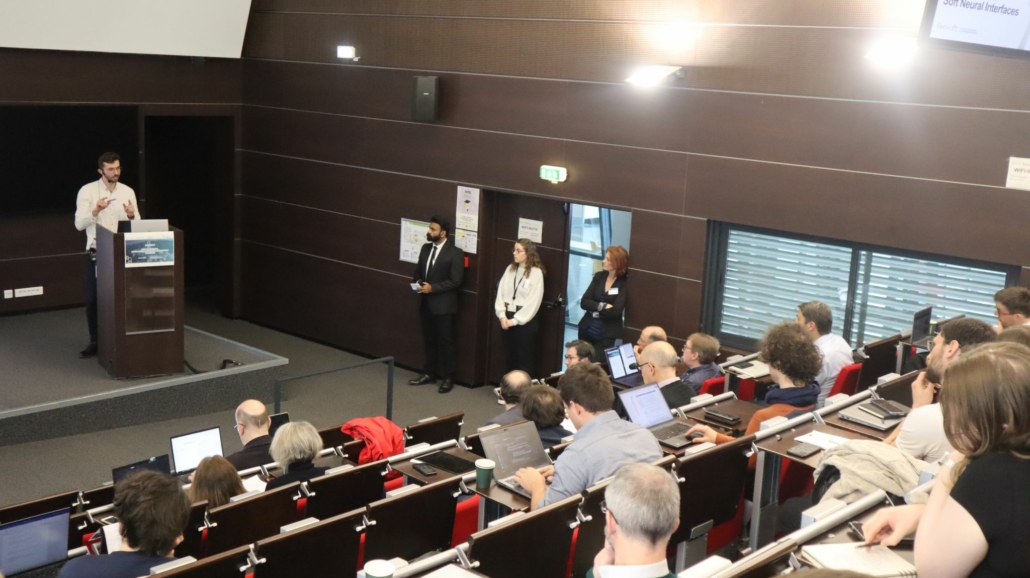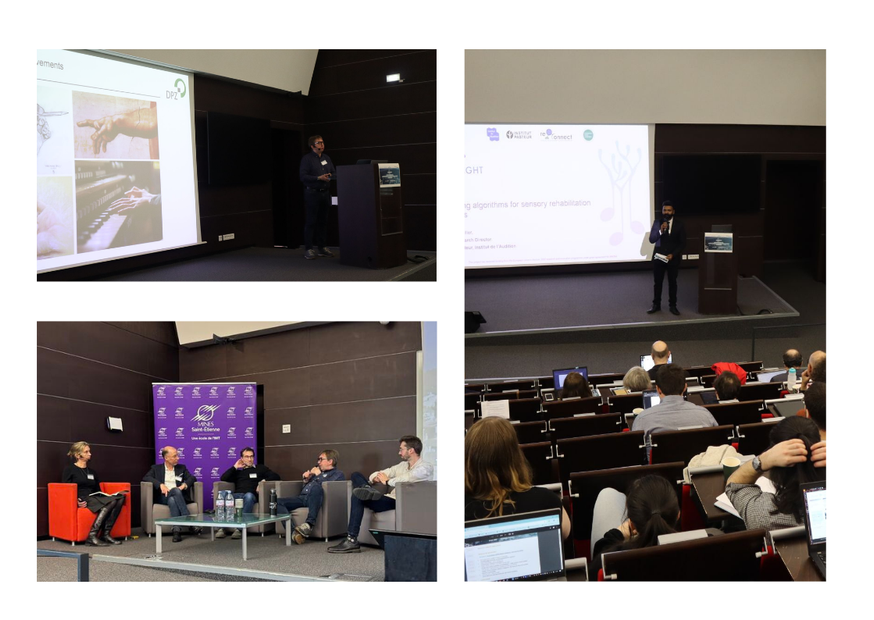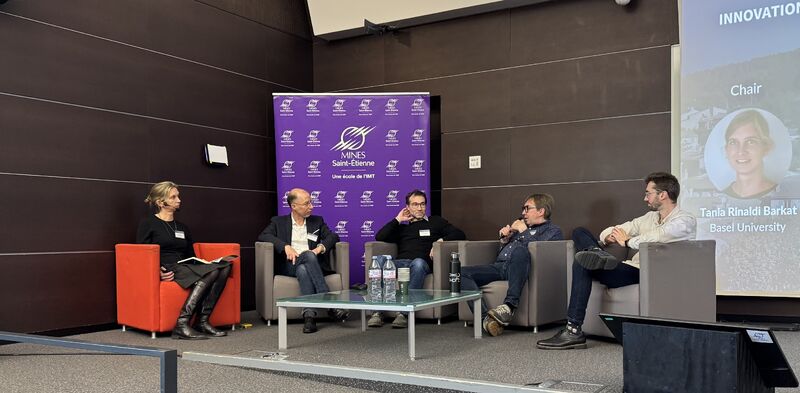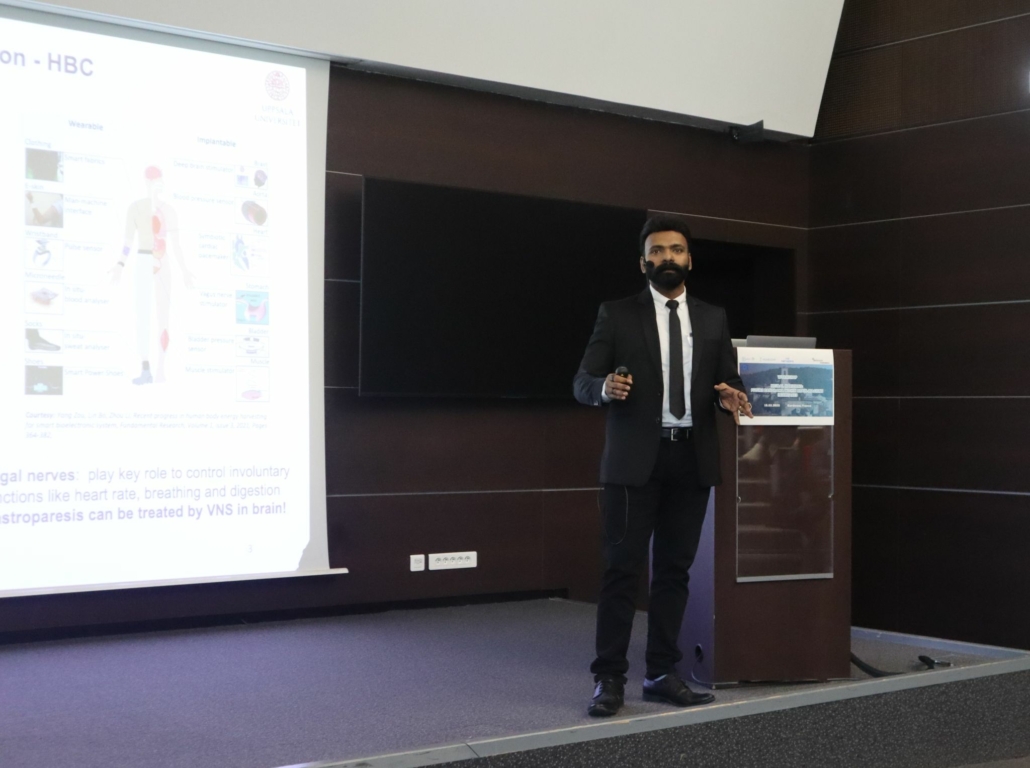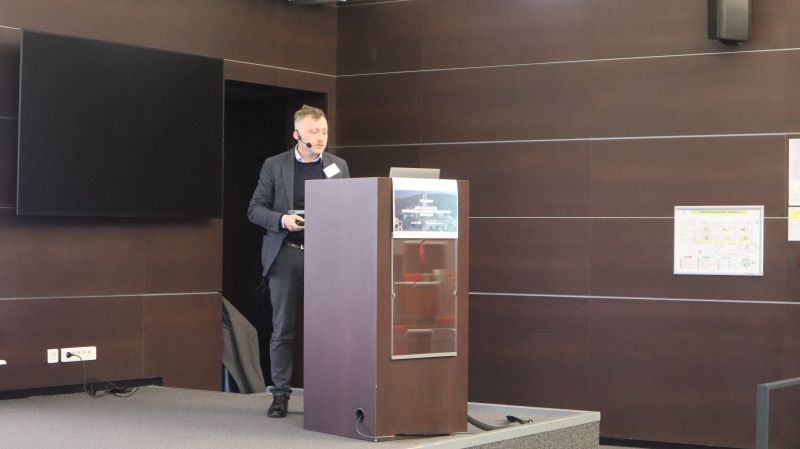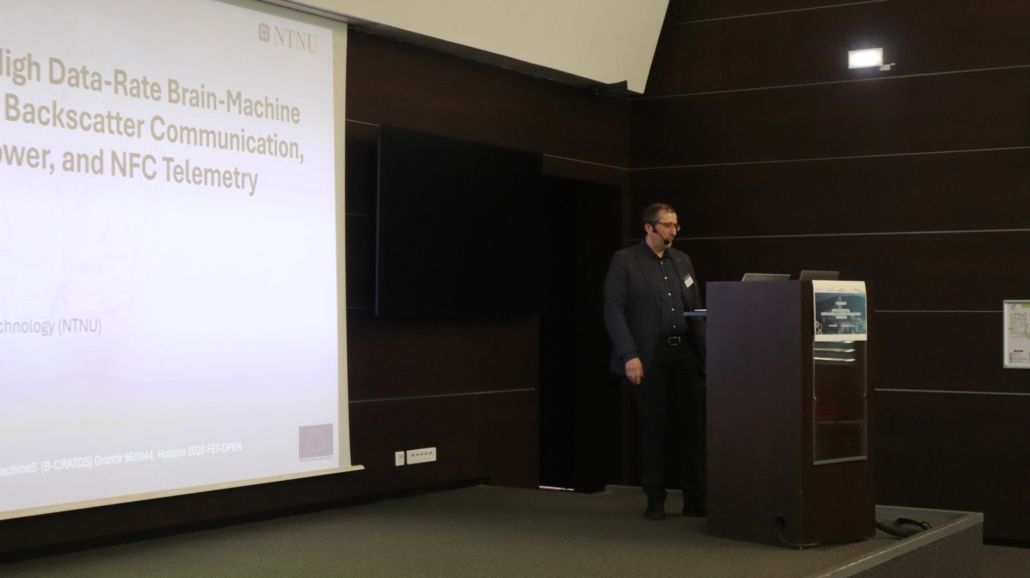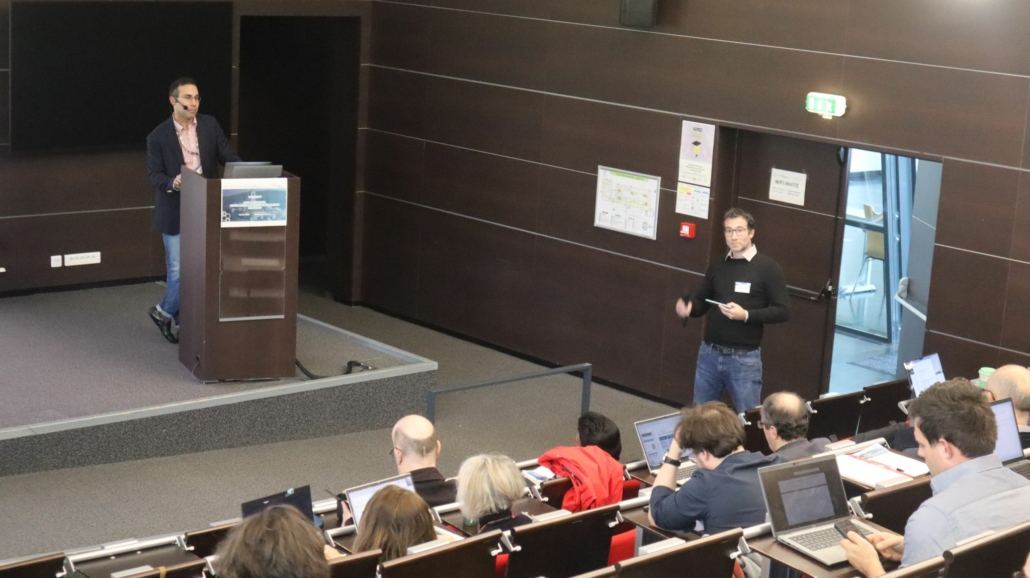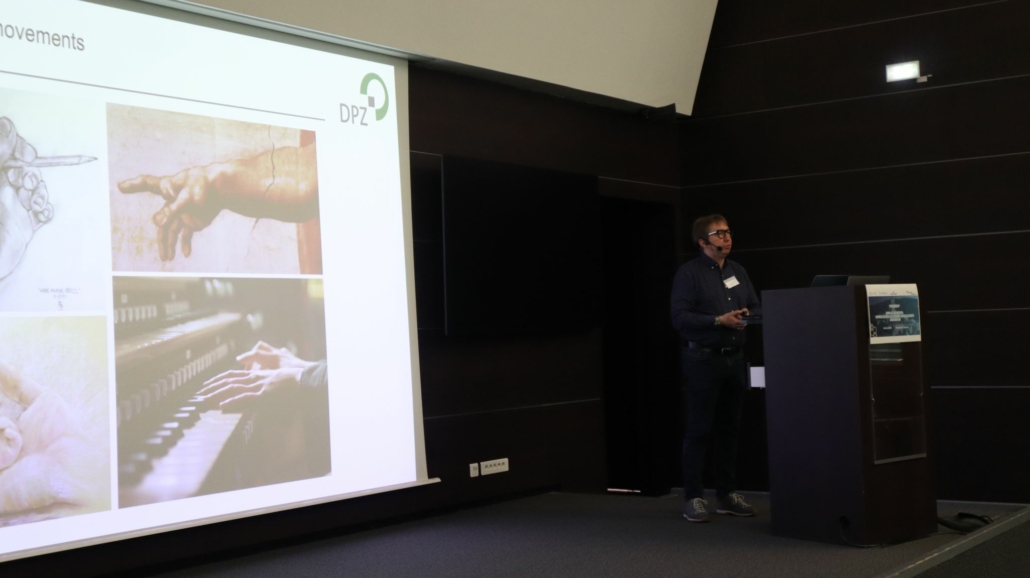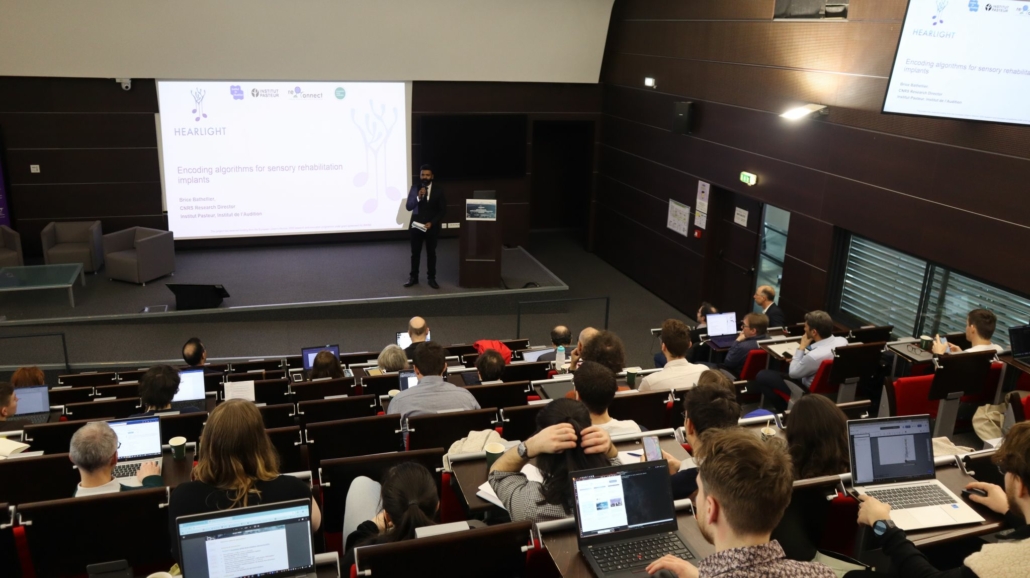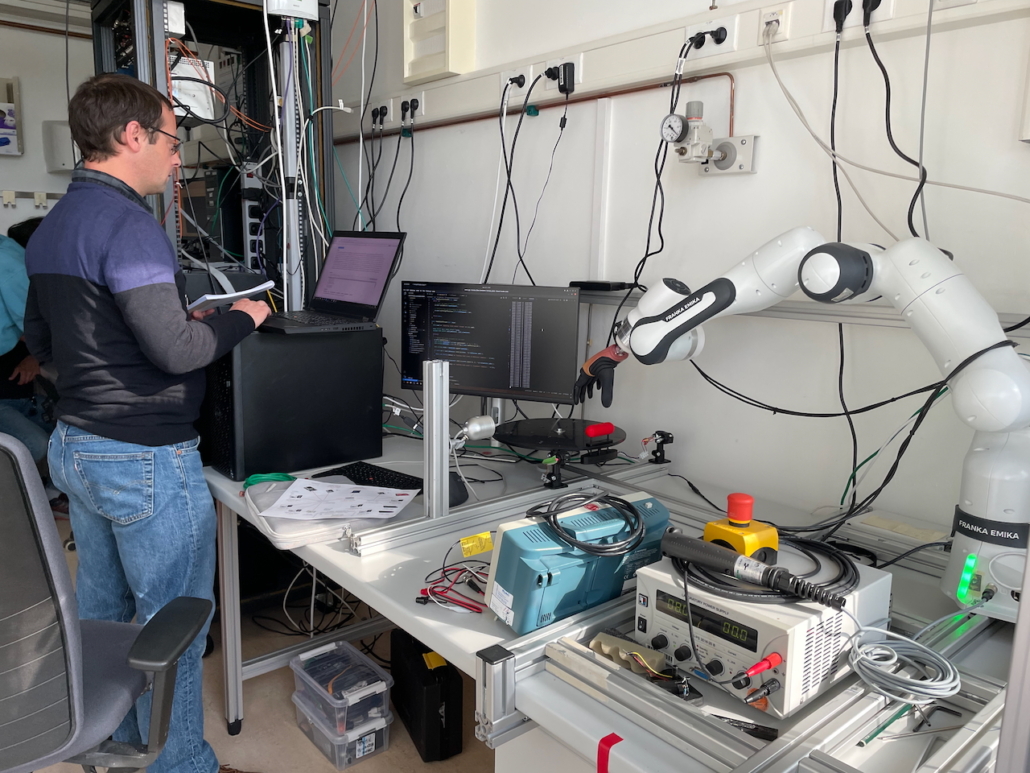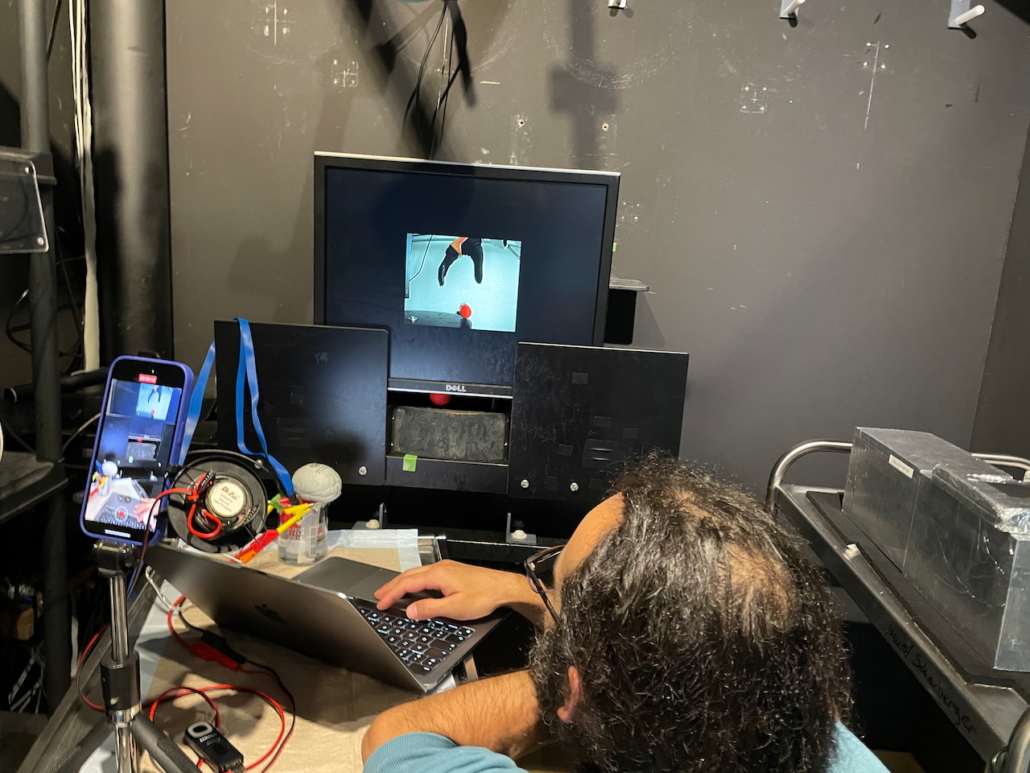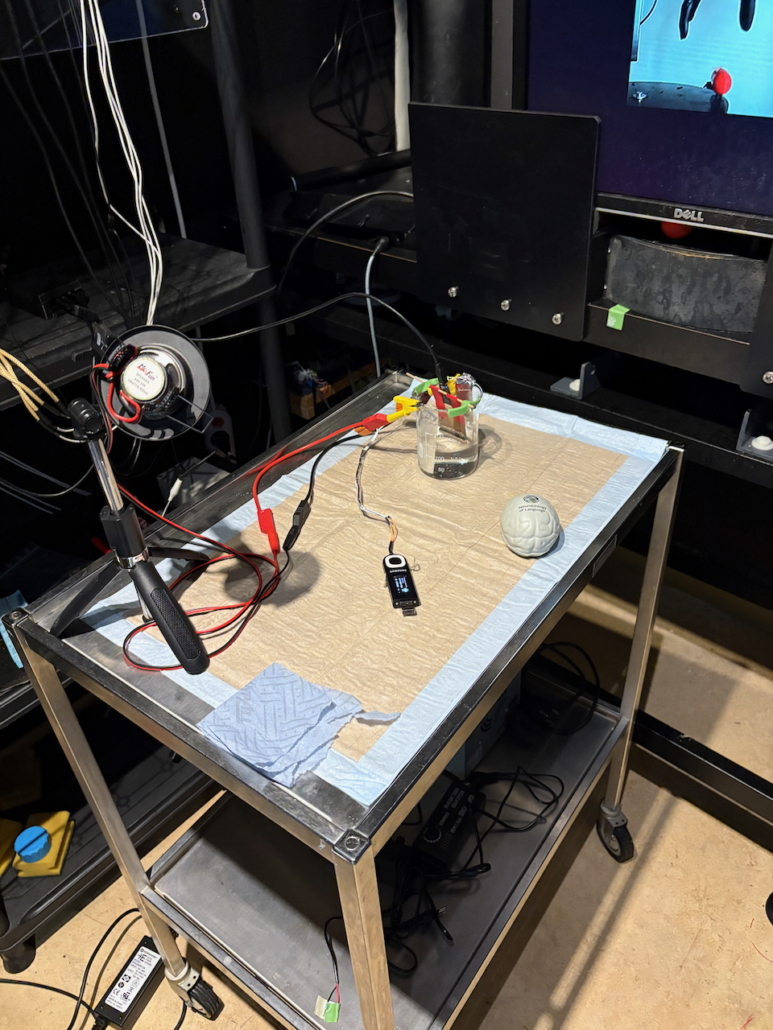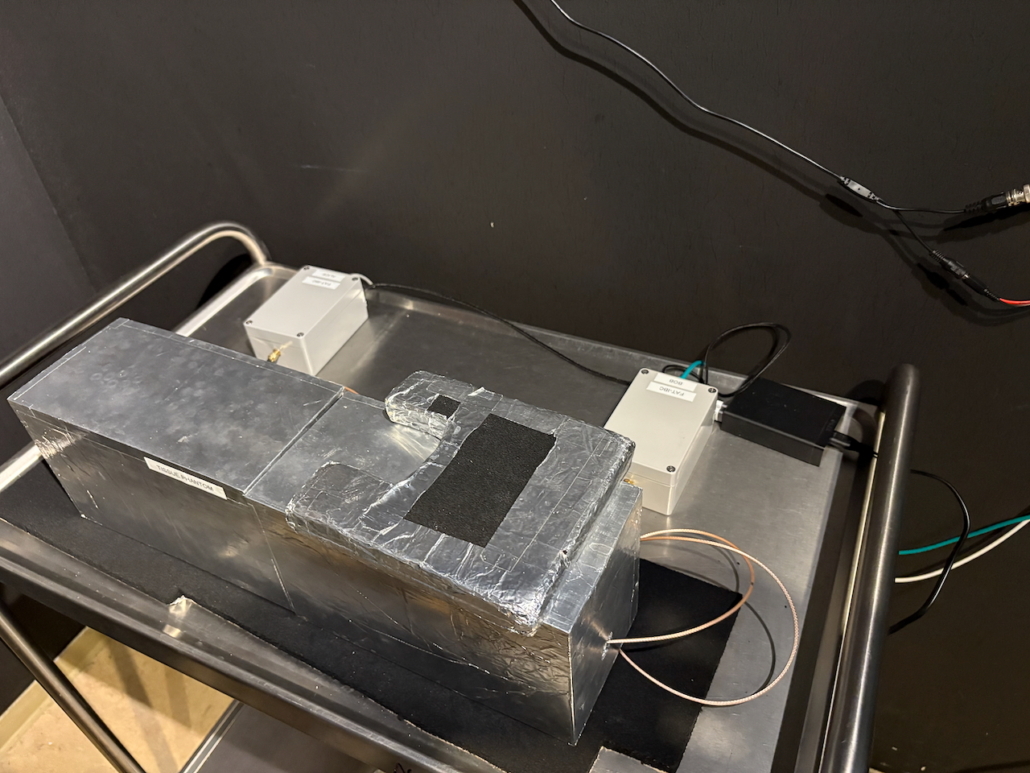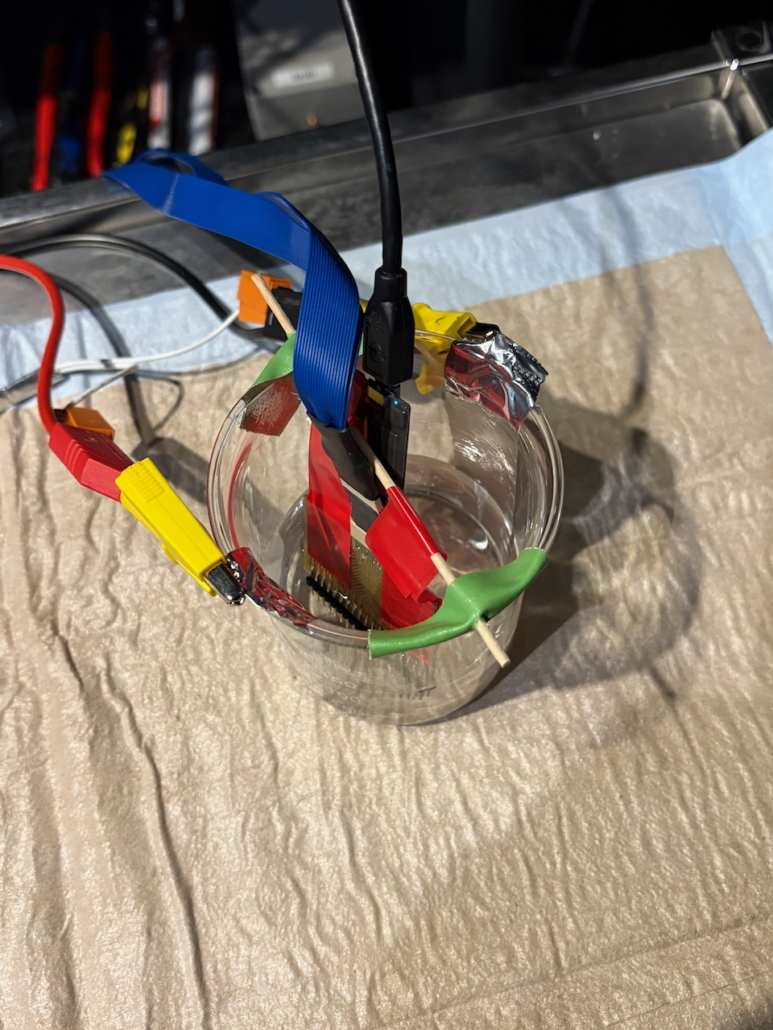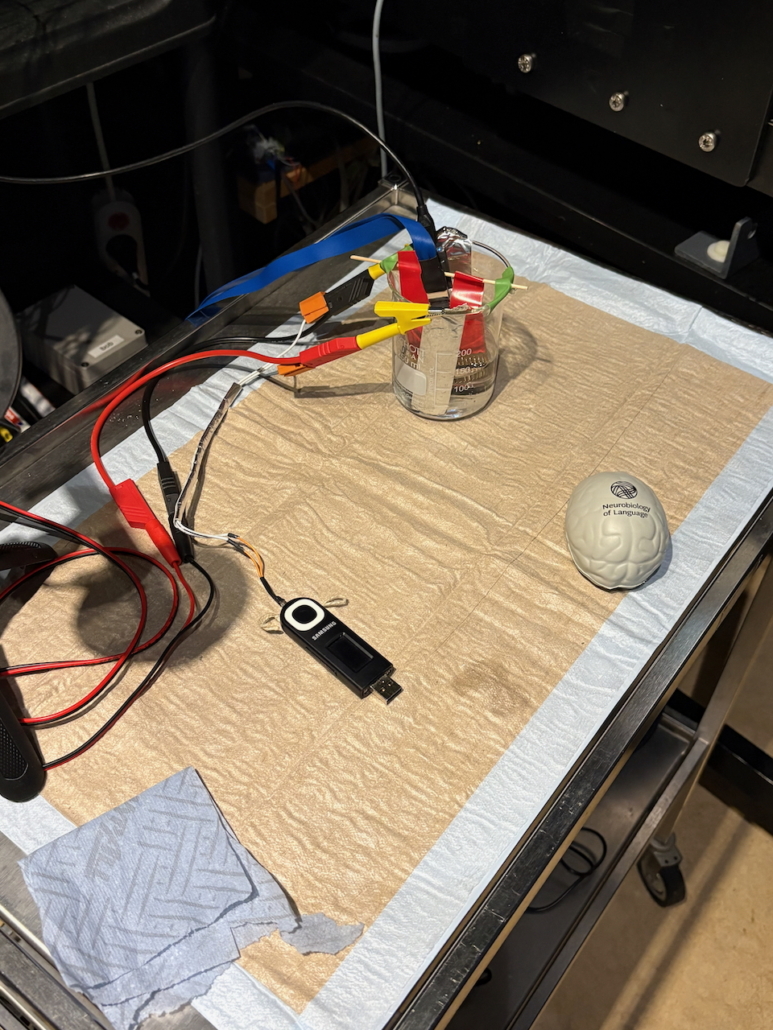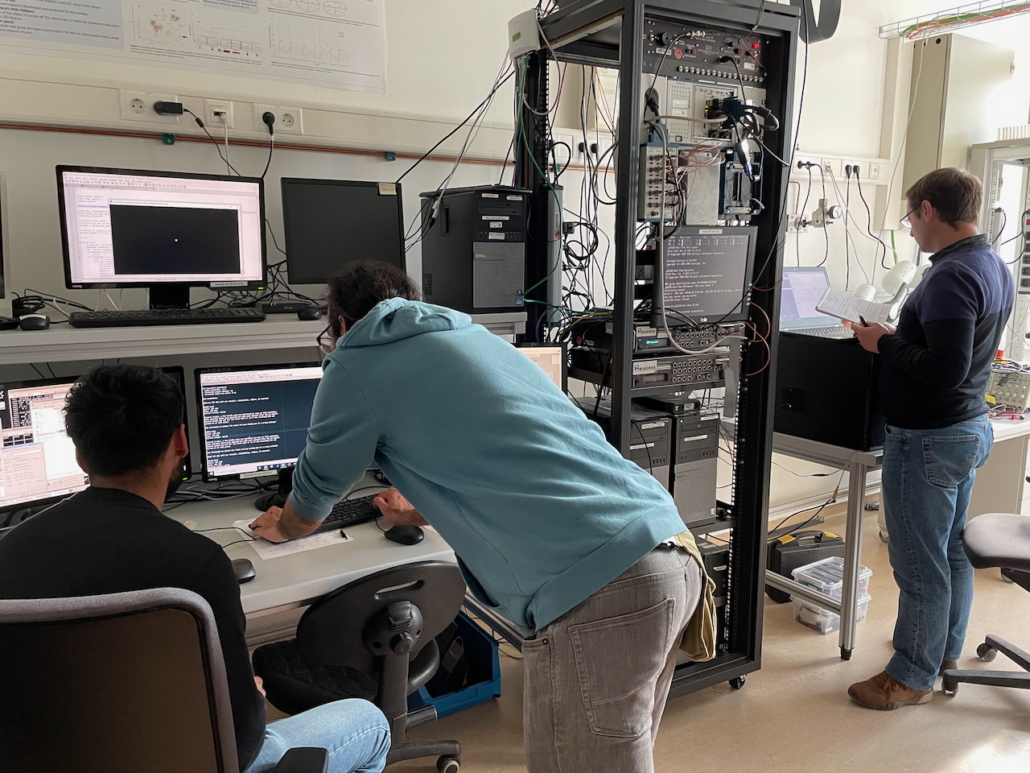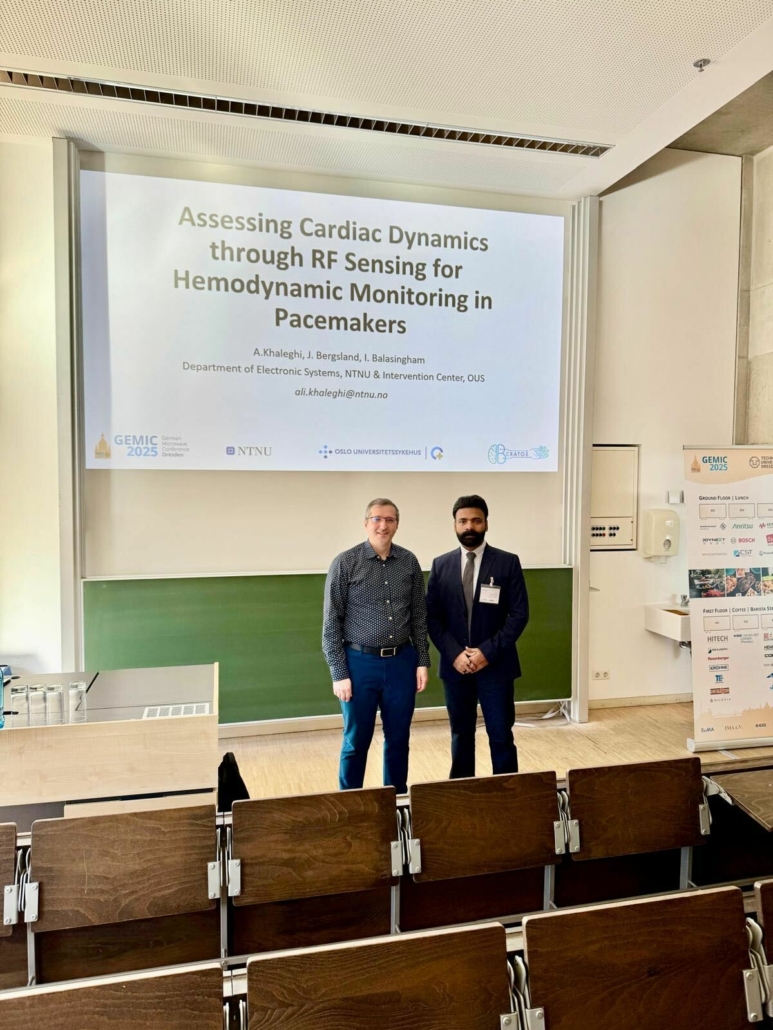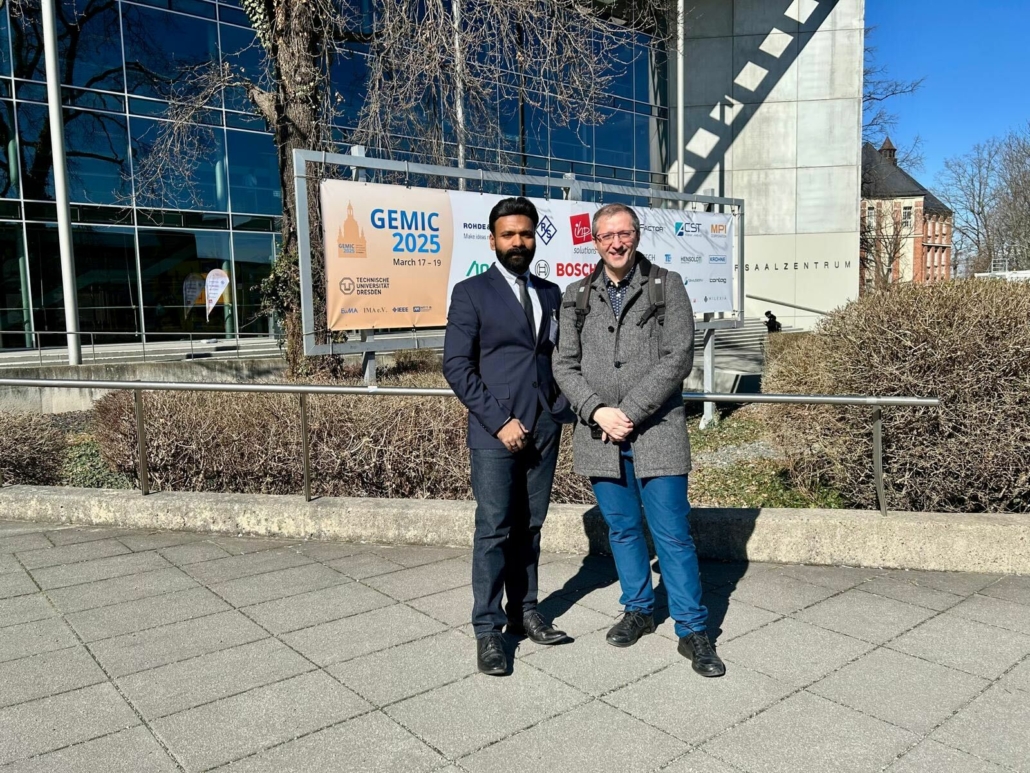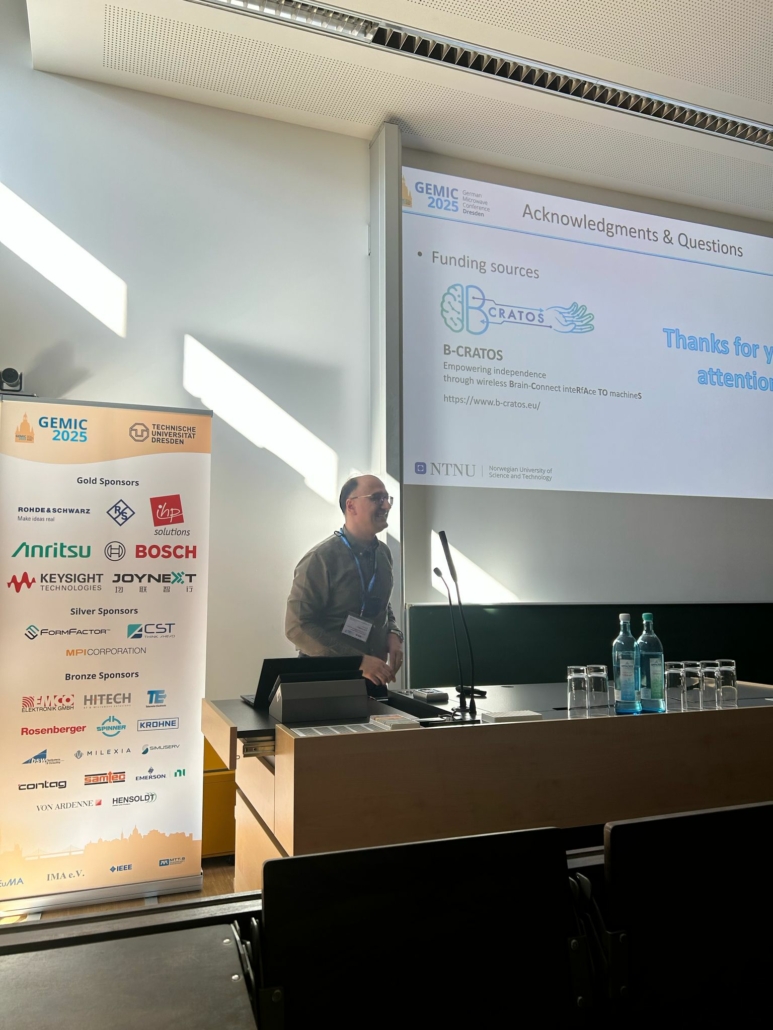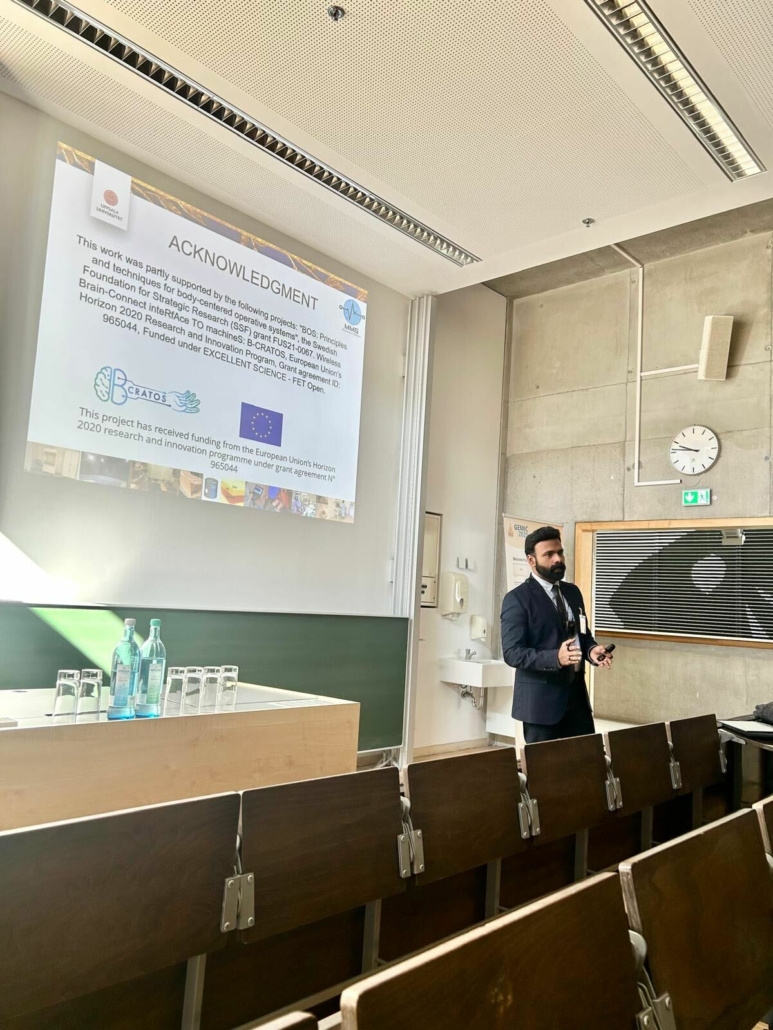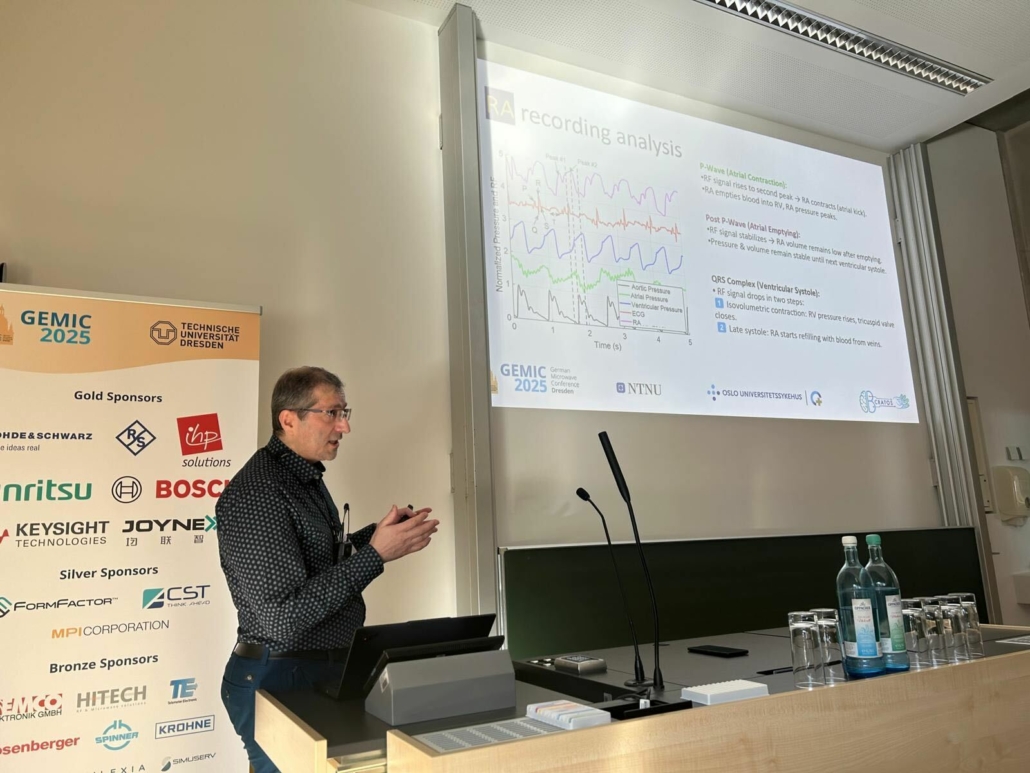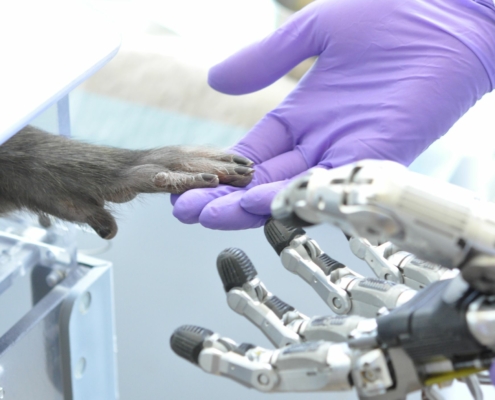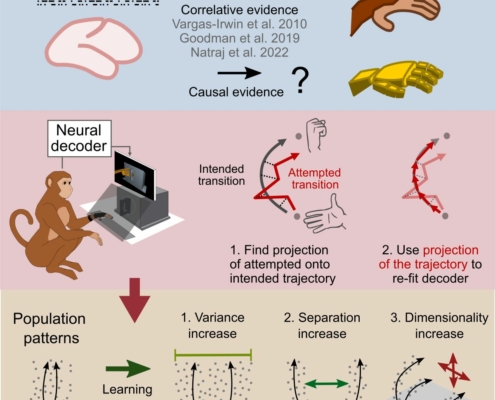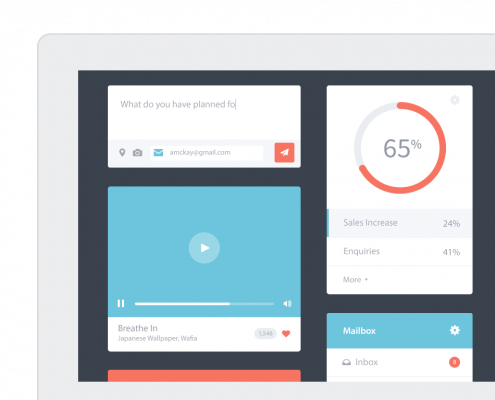4th B-CRATOS Newsletter
May 2025
B-CRATOS Final Newsletter:
From vision to reality
An Interview with Dr. Robin Augustine on B-CRATOS outcomes and next Steps
As the B-CRATOS project comes to its conclusion, we had the opportunity to interview Dr. Robin Augustine, our project coordinator, to discuss the progress made, the challenges encountered, and what’s next for the project. In this interview, he provides valuable insights into the project’s achievements and shares perspectives on the next steps in advancing brain-machine interface technologies.
B-CRATOS Joint Workshop: Pioneering the Future of Brain-Machine Interfaces
On February 19th, 2025, the B-CRATOS project, in collaboration with HearLight – Institut Pasteur and NEMO-BMI – Clinatec, co-organized the joint workshop “Neural Horizons: Future Panorama within Brain-Machine Interfaces” in Gardanne, France. The event gathered leading researchers, engineers, and clinicians from across Europe to discuss the latest advancements in Brain-Machine Interfaces (BMIs) and to explore future perspectives in the field.
The workshop featured three thematic sessions:
- Session 1 – Innovation within Brain Implants
- Session 2 – Mind Meets Machin
- Session 3 – Prospects about Machine-Human Interactions
This full-day event showcased major technological achievements and fostered cross-disciplinary dialogue on clinical translation and human-machine integration. The workshop also served as a key opportunity to connect European initiatives such as B-CRATOS, HearLight, NEMO-BMI, strengthening collaboration across projects.
All presentations were made available online here.
B-CRATOS Testing Week at DPZ: Advancing Toward Integration
In April 2025, B-CRATOS partners carried out an important series of tests at the German Primate Center (DPZ). These experiments mark a defining moment in the project’s final phase, bringing years of innovative research closer to real-world application.
The main objective of this testing was to assess key aspects of B-CRATOS system under experimental conditions to reflect, as closely as possible, future use cases.
While the final results are still being consolidated, this phase already represents a valuable milestone in the project timeline, reflecting the outcome of months of collaboration, technical refinement, and shared effort across partners.
The entire consortium looks forward to sharing more detailed findings in the official technical reports and upcoming dissemination events.
Stay tuned as B-CRATOS continues to push the boundaries of wireless, intra-body communication technologies and neurotechnological innovation.
B-CRATOS Focus session at GeMIC 2025
On March 19th, 2025, B-CRATOS was prominently featured during a special focus session at the 16th German Microwave Conference (GeMIC 2025), held in Dresden, Germany. The session, titled “Body Area Communications: Recent Advancements and Experimental Results”, brought together experts in wireless communication and biomedical engineering.
This event offered B-CRATOS partners the opportunity to present key technological advances in body-machine communication, including wireless power transfer and intra-body data transmission. The session sparked valuable exchanges between academia and industry and reinforced the project’s visibility within the high-frequency and bioelectromagnetics communities.
Organized and chaired by our partners from NTNU and Uppsala University, the session highlighted the interdisciplinary innovation at the heart of the B-CRATOS project and contributed to strengthening collaboration across the European research ecosystem.
For more details and access to the presentation summaries, click here
Discover the B-CRATOS Revolution
B-CRATOS is a game-changer in the BCI field, showcasing innovative approaches that push boundaries. Can you imagine that a chip implant in your head could make your thoughts control prosthetic parts of your bodies?
Delve into this video to discover how B-CRATOS is redefining excellence in BCI!
The automatic closed-loop control explained
In the B-CRATOS bench test system, we simulate closed-loop sensorimotor control on the bench. Test data in a neural format, captured by the implantable device, is sent via wireless off-body backscatter and in-body Fat-IBC system to the AI decoder, which processes the data and triggers movement of the prosthetic. During movement, sensors embedded in the prosthetic hand provide sensory feedback (proprioceptive relating to touch), which is detected by the AI module. A stimulation control command is then returned via wireless pathway to the implantable device. In this test, when the feedback command is received by the implantable device, the test data is updated to a new pattern, and the loop repeats, demonstrating the continuous function of the full closed-loop system. In a real-life setting, the stimulation would provide the user with feedback relating to the movement and result in a change in subsequent neural motor outputs.
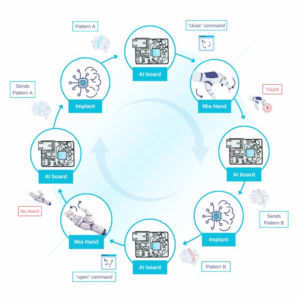
Publication highlight from the B-CRATOS project
We’re highlighting a publication from the B-CRATOS project, led by Andres Agudelo-Toro (DPZ) and published in Neuron (Cell Press), that explores a new way to improve grasping precision in brain-computer interfaces (BCIs).
This study explores a novel approach to improving precision hand movement control in brain-computer interfaces (BCIs) , a key challenge for restoring functional mobility in people with paralysis. While most current BCIs focus on decoding movement velocity, this work takes a different path: decoding transitions in hand postures to guide grasping with greater accuracy.
In the experiments, monkeys used this posture-based control in virtual reality to perform several grasp types across different object orientations. The results showed high accuracy and reduced collisions, with performance improving across sessions.
This approach opens new perspectives for building BCIs that allow for more natural and functional hand movements, with potential applications in assistive technologies for people with motor impairments.
Project details:
TITLE: Wireless Brain-Connect inteRfAce TO machineS
START-END: March 2021 – February 2025
EU CONTRIBUTION: €4,475,059.25
TOPIC: FETOPEN-01-2018-2019-2020: FET-Open Challenging Current Thinking
This project has received funding from the European Union’s Horizon 2020 research and innovation programme under grant agreement N° 965044
